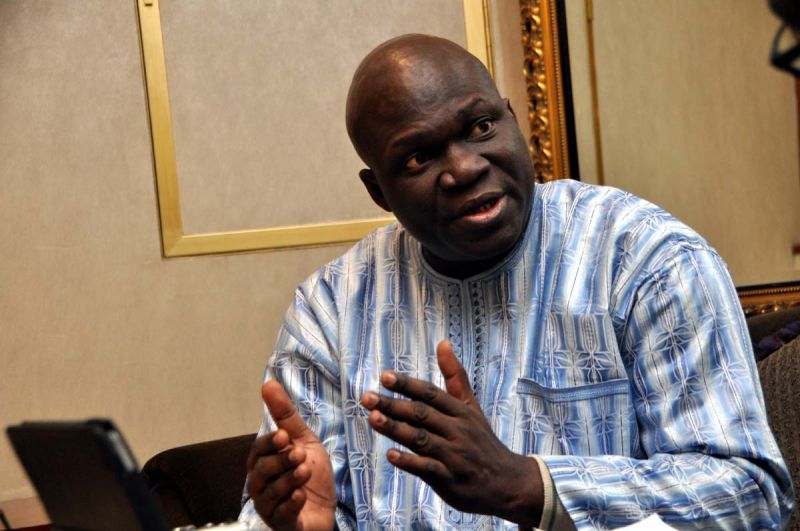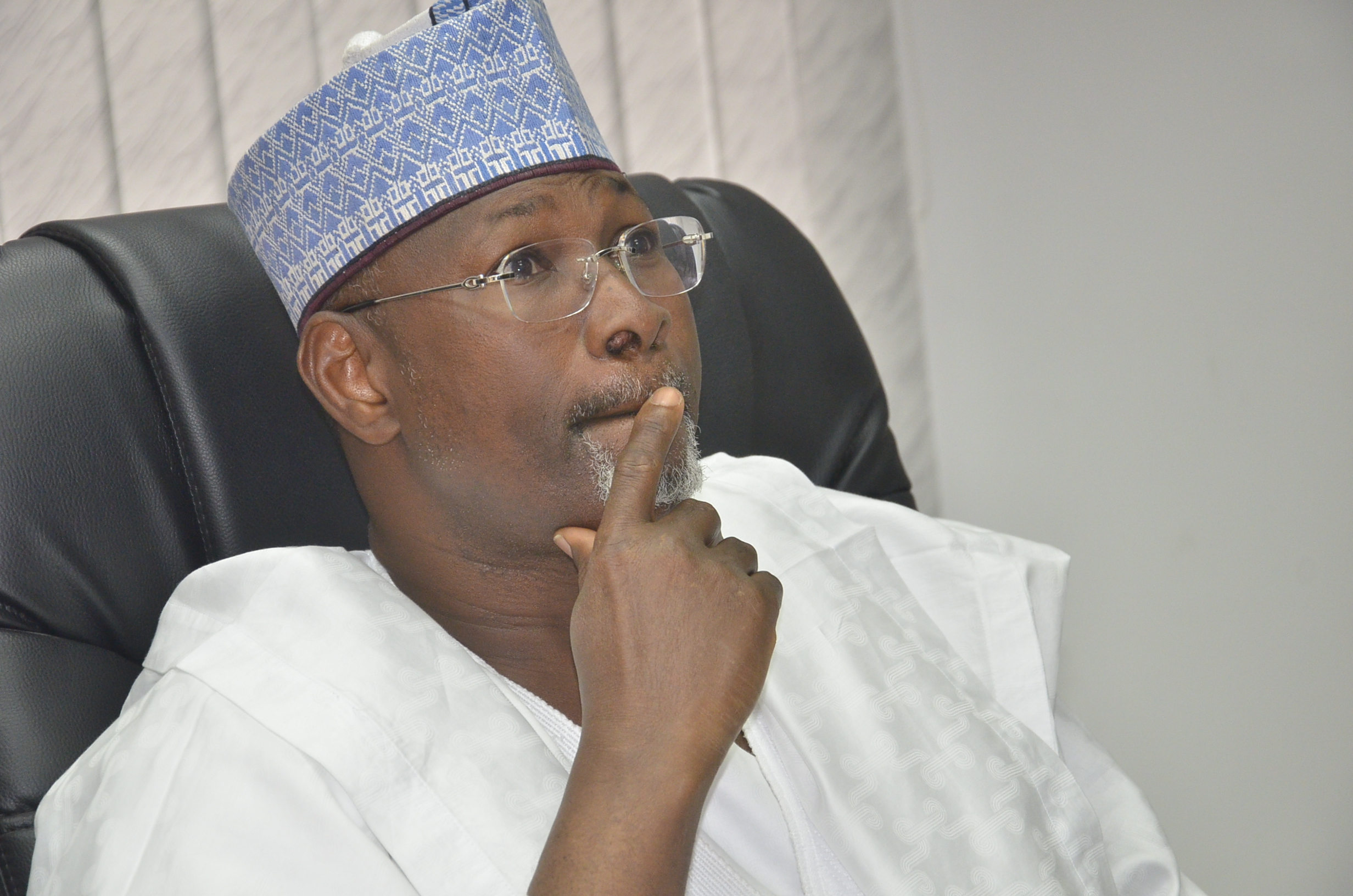BY ADETOLA LA LUZ
With less than three weeks to the presidential election, it is fair to say the printing presses, newspapers and bloggers are working overtime with adverts rolling in here and there. However, the key issue that must be stated here is that the election will be a straight “penalty shoot-out” between the incumbent party, PDP and the main opposition, APC. Each party has clearly outlined its strategy to win and is purposefully following it.
What are their main advantages and weaknesses if we can dispassionately look at issues at this time when members of families are pitched against each other as to who to vote: father against son, mother against daughter, sister against brother and friendship is only a cherished feature now if you have similar political views.
PDP
- Pros
- Experience: With 16 years of political know-how resulting in electoral victories nationwide, it is the party to beat. It is possible to say the party has an idea how Nigerians think politically and vote, although some will call them experts at rigging and electoral violence.
- Geo-political spread: In a country heavily polarised along religious and ethnic lines and using age group as a yardstick for political attainment and societal relevance, the PDP has managed to maintain a hold over key political strongholds for nearly two decades. This is no fluke and points at a party that is adept at political manoeuvring. This party has “leaders” in every key ethnic group in the country.
- Money: Sixteen years of having the key officers in charge of the treasury and the country’s finances has meant that its monetary power has significantly improved and its influence especially in a country where the “Big Man” syndrome is alive and well and to do business at a high level, financial greasing and political might are key ingredients.
- Cons
- ‘Authority stealing’: In the history of Nigeria, no other political party’s officials (apart from the military regime) has been responsible for emptying the nation’s reserves like PDP. Stealing has become such an issue associated with this party that the incumbent president, Goodluck Jonathan, has had the infamy of publicly defending it and PDP stalwarts like Olabode George, Diepriye Alamieyeseigha and James Ibori have spent time in jail at various times for their part in ‘authority stealing’.
- Governance: Since 1999, the PDP has run an oligarchy: a government of the few for the few as opposed to the democratic principles touted. The nation’s wealth has been distributed and at times stolen by a carefully selected loyal few and when the government has done anything for the people, it has been framed as a favour requiring superfluous thanks and appreciation, rather than their duty. The nation’s coffers have been severely bled and it is moderate to say in terms of financial misappropriation, the last 16 years of democratic rule has been worse for Nigeria than all the years of military dictatorship.
- Unemployment: Yes, the administration claims there is SURE-P, YOU-WIN and a few other “programmes” to benefit the teeming population of Nigerians between ages 25-40, but SURE-P pays a graduate trainee N30000 per month (about $15 according to current market rates) while sitting on a lot of stolen funds here and there. The Nigerian citizenry’s dignity has never been lower than now, the promises of democracy have left many teetering on the path of starvation and death, while a few have “eaten” to their belly’s maximum.
- Terrorism and 350 days: The Movement for Emancipation for Niger Delta (MEND) and Boko Haram groups have emerged during the PDP’s reign as the biggest threat to Nigeria’s nascent democracy. The Obasanjo regime met Niger Delta militancy and terrorism with thunder and committed acts of genocide against the people of Odi and Zaki-Ibiam, Yar’adua was able to tackle the scourge of militancy with minimal bloodshed but his death meant that the baton for tackling Boko Haram was passed on to his deputy: Jonathan. In six years, the Jonathan administration has done a shoddy and unremarkable job of curtailing Boko Haram’s advances and merciless killings. Thousands of lives have been lost under the president’s watch and no responsibility has been demonstrated by him with regard to the Chibok girls who will have been in captivity for almost 350 days (348) when the presidential poll hold on March 28, 2015.
- Media-crity: It is election year and no surprises that every party is trying to gain the votes of the electorate. Strategies are always key with each party keen to ‘expose’ the failings and weaknesses of the other to gain the social vote, then the actual vote. PDP, however, employs the maddest strategy in my opinion.
Apart from the president gallivanting around the country seeking endorsements (from religious and ethnic organisations) like a Nigerian musician and taking over the Nigerian Television Authority for solely pro-PDP adverts, documentaries and endorsements (an abuse of the NTA’s duties to be represent all Nigerians); who selects a person who has clearly expressed strongly negative opinions about the incumbent and has an ongoing EFCC (Economic and Financial Crimes Commission) case to head the re-election campaign?
The PDP also cannot caution party representatives like Fayose and Okupe, whose views border on the morbid, ridiculous or insane.
Advertisement
The sponsored attack on Prof Attahiru Jega is also laughable in the sense that he heads the Independent National Electoral Council (INEC) and should be given free rein to do his job as constitutionally assigned. Also there is the question of the timing of these attacks: when did Jega become the enemy? It seems convenient now that the PDP foresees a beating in the March and April 2015 elections to target Jega. How convenient!!!
Adverts from parties connected to the PDP (Wakeup Nigeria, Fresh Nigeria, We Are Nigeria et al.) hardly focus on key national issues but embellish the incumbent’s image using messages such as “Goodluck is the will of God and no one votes against God’s will: this being tantamount to religious blackmail and a misuse of the Bible for political purposes.
It is fair to say the PDP’s media strategy is flawed and throwing cash around whether to Ndigbo or CAN will not draw the votes in.
Advertisement
- Jonathan’s legacy: What exactly is the president continuing? While most advanced countries are using hi-speed trains and underground tubes in an attempt to reduce congestion on their roads and simplify transportation for commuters; the “Giant of Africa” is touting the use of locomotive trains with unsafe platforms, overcrowding, poor ticketing systems and scheduling as forward thinking?
Our educational system has never been worse than in the period when PDP has chaperoned our polity. Our educational institutions can hardly boast the knowledge base necessary to bring us to par with advanced nations making us over-dependent on expatriates and Africa’s biggest market for Western and Asian products, producing reduced exports and exportable products. We are experiencing brain drain like never before: with our citizens having to study abroad to actually achieve knowledge in their chosen profession and our exceptional brains being poached by other nations, at no other time in our history have we been any poorer in terms of human resource.
APC
- Pros
- Change: At no point in the last 16 years has the APC captured the attention of the Nigerian citizenry so much that it saw the elections dated shifted for the first time since 1960. The APC is riding high in the opinion polls and amidst the Nigerian youth, a bulwark that represent roughly 70 percent of the population. It can safely be described as a party whose time has come.
While its presidential election contestant, General Muhammadu Buhari has failed in his last three attempts to gain as much as a glance from the electorates; at the moment, he is the darling of the Nigerian public and it would be foolish to discard his chances of attaining the presidential seat come May 29, 2015, as many Nigerians see him as the change from the corruption-laden rule of the PDP since 1999. PDP’s campaigns on his health, education, or records during his two-year rule as military dictator has not been enough to turn the voters away from GMB. He almost feels like Obama when the Americans got tired of Bush and the Republican Party.
- Anti-corruption: With the PDP finding it difficult to shift accusations of corruption from their actors such as James Ibori, Alamieyeseigha, Olabode George and presidents since 1999; GMB’s record of imprisoning corrupt governors during his tenure comes as a refreshing message and many Nigerians would happily welcome such a change from the murky scenes that have become commonplace with PDP in power.
- Geopolitical support: Different from 2011 and 2007, GMB has garnered a head of steam nationwide and internationally. APC has succeeded in selling him to Nigerians as the man they need to actualise all the things they have looked up to PDP’s men to provide.
But APC is not without its problems.
- Cons
- Associates: If GMB can aspire to sainthood, he certainly loves to dine with devils. Bola Tinubu, the APC stalwart, is said to be a man of the people but Lagosians cannot forget how corrupt his administration was. Rotimi Amaechi, Bukola Saraki etc. do not come with pristine reputations.
The defections of some PDP’s members into the APC’s ranks can only be problematic, owing to the PDP’s everlasting association with corruption and ‘authority stealing’. If these “evil” PDP politicians find solace in APC’s abode, will they become honourable or will they carry on “business as usual”? If GMB’s claim that he can kick out corruption from Nigeria’s mainstream is to be believed, he perhaps needs to start making new friends.
Advertisement
- Acceptability: although APC has been in existence for as long as PDP has, it has always been the bridesmaid and never the bride as far as the presidency is concerned. In 2003, it did not field any presidential candidate and sided with the PDP over a rather silly ethnic quota (because Obasanjo was from the Yoruba ethnic group).
At the state level, APC has enjoyed pockets of success in the few states where their flag hangs and although they can lay claims to better results than their PDP counterparts, the key question is: will the majority of Nigeria be swept by them or will they continue to stay in the corner of the house?
- Ethnic sentiments: It is alleged that when the PTF was run by GMB, it was a northerner’s haven, with mainly talents from Northern Nigeria accepted and other Nigerians excluded. Buhari has also been credited with divisive statements where Boko Haram is concerned and advocating bloodshed during elections. Some also cite an inability to discipline Northern soldiers during his stint in charge. While some of these allegations may be unfounded, how Buhari will deal with the ethnic question is definitely something to think about.
Regardless of which side you will be voting in the March and April 2015 elections, you will have to make some hard choices: to continue with large-scale corruption and impoverishment of the many to serve the enriched few or to embrace change which is not really change as it should be but an interim platform for actual change but still supervised by some of the enriched few and a party keen to take Nigerian politics by the scruff of the neck.
Whatever choice you make, I hope Nigeria and Nigerians come out on top. I’m going with change. Long Live Nigeria!
Advertisement
Add a comment



